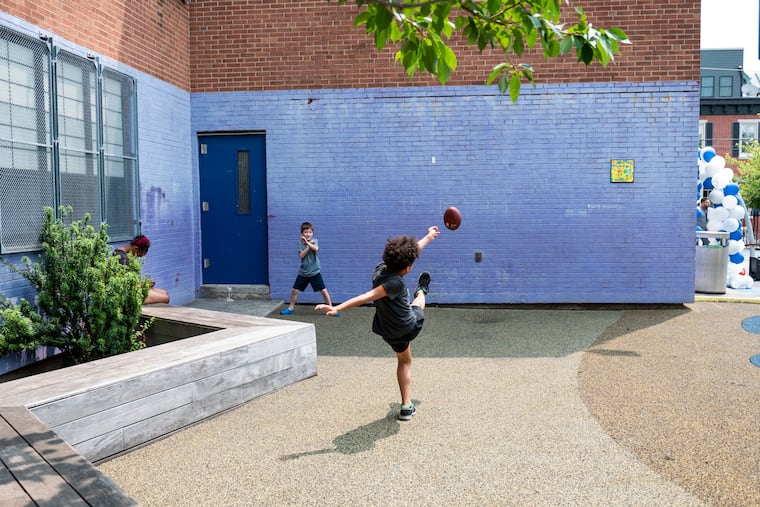Philly elementary school gets a new name: Goodbye, Chester Arthur. Hello, Marian Anderson.
The name change had been in the works for months, moved ahead by a determined group of fifth graders.

A South Philadelphia elementary school has a new name.
The former Chester A. Arthur Elementary, at 20th and Catharine, is now the Marian Anderson Neighborhood Academy. The school educates about 307 students in kindergarten through eighth grade.
Philadelphia’s school board formalized the name change June 29, but the project had been in the works for months, moved ahead by a determined group of students.
The desire, Anderson sixth grader Luca Samson said, bubbled up from students and community members who wanted the school to be named after someone who better represented their values.
“I think that Chester Arthur is a bad name for our school because he was a racist who didn’t treat people well,” Luca told the school board in testimony.
That is: The 21st U.S. president, who served from 1881 to 1885, had no connection to Philadelphia, and was responsible for the Chinese Exclusion Act, the only law that ever banned an entire ethnic group from immigrating to the United States.
Instead, the kids, and the community, decided they wanted to honor a Philadelphian of distinction, someone who lived in the neighborhood and earned international recognition, both for her singing and her bravery.
Anderson was born in 1897 and spent her formative years in South Philadelphia. Her contralto singing voice earned her international praise, but she was denied entry to the Philadelphia Music Academy because she was Black, and moved for a time to Europe, where she gained widespread acclaim.
Anderson ultimately returned to the U.S., where she was the first Black singer at the Metropolitan Opera, sang at two presidential inaugurations, and worked with the U.S. State Department and United Nations.
“She was a pioneer who broke down barriers and celebrated diversity,” Samson said.
Luca’s classmate Malachi Grogan told the school board Anderson “was determined to be the best, and it wasn’t fair that she wasn’t fully allowed to sing where other non-Black singers could. Denying someone of their hopes and dreams does not fit in the lines with the beliefs and values of our school, because we believe in the potential of all students. All students should be respected and free from barriers.”
Students and the community chose Anderson from a pool of three finalists; also considered were Nellie Rathbone Bright, a Philadelphia educator who had success as a poet and author, and Caroline LeCount, another renowned educator who worked against segregation in the city, defying laws that prohibited Black people from riding streetcars.
The board unanimously voted to approve the name change.
Anderson is not the only Philadelphia school that has shed its original name.
The former Sheridan School, in Kensington, which had been named after a Civil War general responsible for brutal campaigns against Native Americans, is now Gloria Casarez Elementary, named for the trailblazing Philadelphia LGBTQ activist and civil servant.
Fanny Jackson Coppin Elementary, in South Philadelphia, had been named for former president Andrew Jackson, a slave trader who signed the Indian Removal Act. The school now honors the principal of the Institute for Colored Youth in Philadelphia, a precursor to Cheyney University.
Woodrow Wilson Middle School, in the Northeast, has been renamed Castor Gardens Middle School, after the surrounding neighborhood; it had honored the former president, whose racist views and practices have complicated his legacy in recent years.